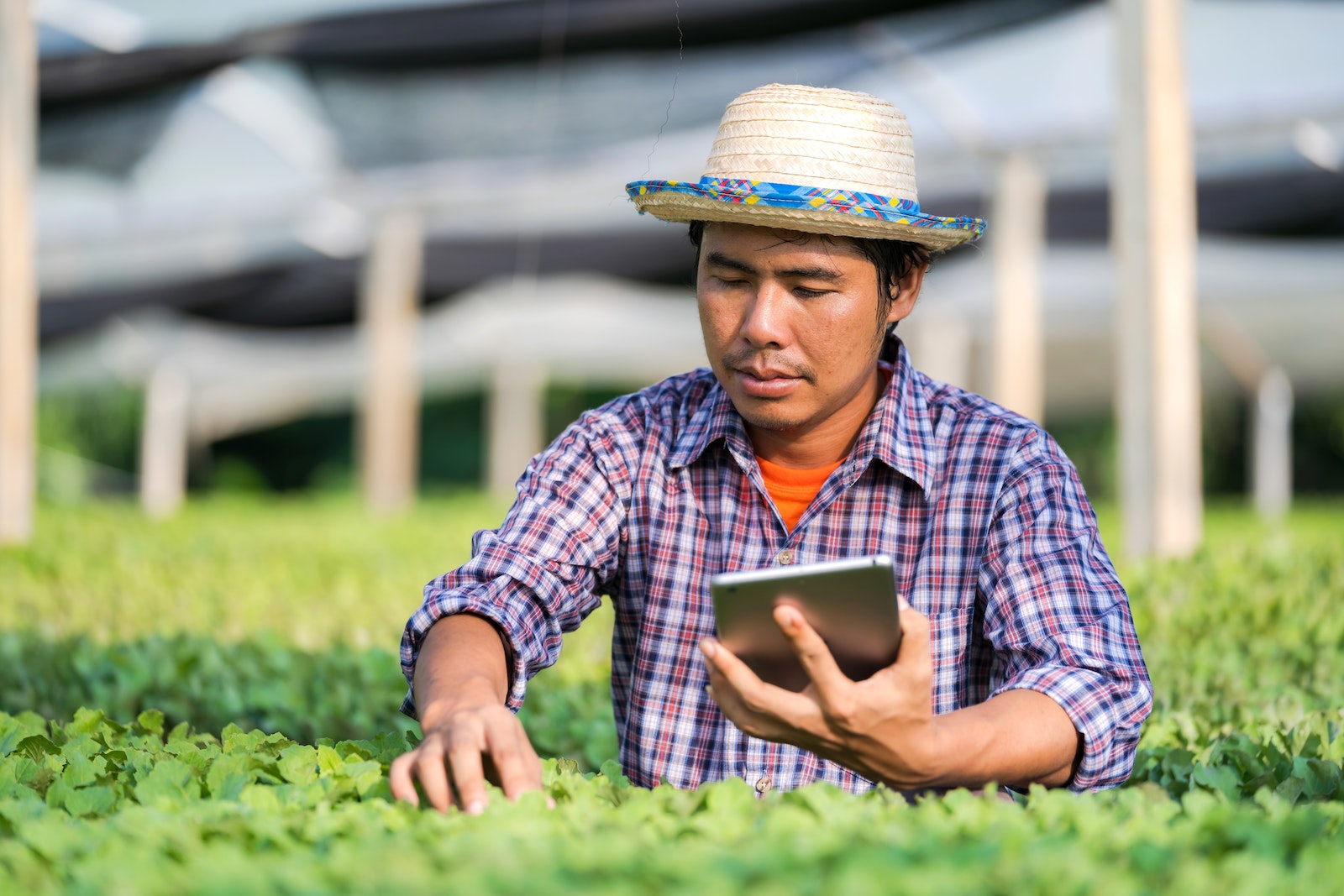In today’s interconnected world, geographical boundaries are blurring and digital boundaries are emerging. We are increasingly dependent on digital platforms and technologies for communication, collaboration, innovation, and even for the basic aspects of our daily lives. This burgeoning digital ecosystem is transforming not only how we interact with each other but also how we address shared global challenges. With digital technology at our fingertips, we have unprecedented opportunities for cooperation and collaboration, on scales larger and more complex than ever before. This leads us to the concept of ‘Digital Cooperation’ – an idea that encapsulates our collective digital endeavors for shared objectives.
But why is this concept important? Why should we care about digital cooperation, and what role does it play in our world today?
Digital cooperation is not just about technology. It is about the potential for human collaboration and unity that technology enables. It is about the innovative solutions, the shared knowledge, and the unparalleled connectivity that digital cooperation can foster. And crucially, it’s about the power of digital cooperation to transform our world and advance our progress towards a more sustainable and inclusive future.
As we venture further into this digital age, the importance of digital cooperation in achieving the Sustainable Development Goals (SDGs) becomes increasingly apparent. It holds the key to unlocking innovative solutions for complex global challenges, to bridging the digital divide and ensuring inclusive access to information and knowledge, and to fostering global collaboration for sustainable development.
In this long-form blog post, we will delve deeper into the concept of digital cooperation, its importance for sustainable development, its real-world applications, and the challenges and opportunities it presents. We will explore how digital cooperation can foster global connectivity, drive innovative solutions, and shape a sustainable future for all. So, let’s embark on this digital journey together, exploring the potential and the power of digital cooperation for a sustainable world.
Understanding Digital Cooperation
As we step further into the age of digital cooperation, it’s vital first to understand what it truly means. Digital cooperation is about much more than just using digital platforms or technologies. It’s about how these platforms and technologies enable us to work together, to learn from each other, and to solve complex problems together. It’s about harnessing the power of digital technologies to foster global unity, collaboration, and sustainable development.
Digital cooperation encompasses a wide range of activities and processes. From sharing knowledge and data to collaborative problem-solving, from cross-border digital services to the development of inclusive digital policies – all these are integral aspects of digital cooperation. It’s a concept that embodies our collective digital endeavors for shared objectives, transcending national borders and societal boundaries.
In essence, digital cooperation is about utilizing digital technologies to bring people together. It’s about facilitating dialogue, fostering understanding, and promoting collaboration in the digital realm. It’s about enabling diverse groups of people – from different locations, backgrounds, and fields of expertise – to work together towards common goals. In the context of the Sustainable Development Goals (SDGs), these common goals are the 17 global objectives for sustainable development that were adopted by all United Nations Member States in 2015.
Yet, as with any form of cooperation, digital cooperation also faces challenges. These include digital divides and inequalities, data privacy and security issues, and the need for inclusive and equitable digital policies. However, these challenges are not insurmountable. With the right strategies, policies, and initiatives, we can overcome these hurdles and harness the full potential of digital cooperation for sustainable development.
Understanding digital cooperation is the first step towards leveraging its potential. It helps us appreciate the value of digital platforms and technologies as tools for cooperation and collaboration. It also helps us identify the challenges and opportunities that digital cooperation presents, paving the way for effective strategies and solutions.
As we navigate through the digital age, digital cooperation will increasingly shape our world and our future. It holds the key to unlocking innovative solutions, bridging digital divides, and fostering global unity. By understanding digital cooperation, we can leverage its potential for a sustainable and inclusive future.
Importance of Digital Cooperation for Sustainable Development
The importance of digital cooperation extends far beyond just the technology sector. It plays a pivotal role in advancing sustainable development, particularly in the context of the United Nations’ 17 Sustainable Development Goals (SDGs).
Digital technologies hold immense potential to accelerate progress towards these goals. They can drive economic growth, foster social inclusion, and facilitate environmental protection, offering unique solutions to some of the most pressing global challenges. However, to fully unlock this potential, cooperation is essential. And that’s where the concept of digital cooperation comes into play.
Firstly, digital cooperation is crucial for bridging the digital divide. Despite the rapid growth of digital technologies, digital disparities remain widespread. Many people, particularly in developing regions, still lack access to digital platforms and services. By fostering cooperation among governments, tech companies, and other stakeholders, we can work towards ensuring digital inclusivity and equality.
Secondly, digital cooperation can facilitate knowledge sharing and capacity building. By enabling diverse groups of people to collaborate and share knowledge, digital technologies can drive innovation and problem-solving. They can foster the sharing of best practices and the development of new ideas, promoting progress towards the SDGs.
Thirdly, digital cooperation is key for managing digital risks. Digital technologies, while offering numerous benefits, also pose risks such as data breaches, privacy violations, and cyber-attacks. Through cooperation, stakeholders can develop shared norms, regulations, and mechanisms to manage these risks effectively.
Furthermore, digital cooperation can enable the integration of digital strategies into broader sustainable development strategies. By aligning digital initiatives with the SDGs, we can ensure that digital development is not just about technological advancement, but also about promoting sustainability and inclusivity.
Lastly, digital cooperation is vital for fostering global unity. In the face of global challenges, international cooperation is more important than ever. By facilitating global dialogue and collaboration, digital technologies can foster unity and mutual understanding.
In sum, digital cooperation is integral to leveraging the potential of digital technologies for sustainable development. It can bridge digital divides, drive innovation, manage digital risks, align digital strategies with sustainability goals, and foster global unity. In the digital age, cooperation is not just beneficial – it’s essential for sustainable development.
Case Studies of Digital Cooperation in Action
For a clearer understanding of the potential of digital cooperation, let’s look at some real-world examples where this concept has been put into practice to drive sustainable development.
1. Smart City Initiatives
A prominent example of digital cooperation can be found in the development of smart cities. These are urban areas that use digital technologies to improve the quality of life for their residents, enhance sustainability, and streamline urban services. For instance, in Barcelona, a collaboration between the local government and tech companies led to the creation of a city-wide Internet of Things (IoT) network. This network allows for real-time monitoring and management of various urban systems, from waste management to parking. By facilitating cooperation between public and private entities, smart city initiatives like this can drive sustainable urban development.
2. e-Residency in Estonia
Estonia’s e-Residency program offers another exciting example of digital cooperation in action. This initiative, launched by the Estonian government, enables anyone, anywhere in the world, to become a digital resident of Estonia. As e-residents, individuals can start and manage an EU-based company online, access banking and payment services, and utilize Estonia’s digital public services. This initiative, made possible through cooperation between the government and tech sector, not only fosters digital inclusion but also boosts economic growth.
3. United Nations’ Digital Cooperation Roadmap
At the global level, the United Nations’ Roadmap for Digital Cooperation serves as a model for digital cooperation. Launched in 2020, the roadmap outlines strategies for achieving a more inclusive digital future, addressing issues like digital human rights, digital inclusivity, and digital capacity building. It’s a testament to the power of international cooperation in harnessing digital technologies for global good.
4. Global Pulse Initiative
Another notable initiative is the United Nations’ Global Pulse project. This initiative uses big data and AI to support humanitarian efforts and sustainable development. Through partnerships with governments, NGOs, and private sector entities, Global Pulse leverages digital technologies to monitor trends, analyze data, and provide insights that can inform policy and decision-making. This is a great example of how digital cooperation can enhance our ability to address global challenges.
These case studies highlight the power of digital cooperation in action. They showcase how, by working together, diverse actors can harness digital technologies to drive progress towards the SDGs. They remind us that, in the digital age, cooperation is not just about navigating digital challenges – it’s also about seizing digital opportunities for sustainable development.
Challenges and Opportunities in Digital Cooperation
Like any paradigm shift, the move towards digital cooperation brings with it a set of challenges and opportunities. Understanding these can help us navigate the digital landscape more effectively and harness its potential for sustainable development.
Challenges in Digital Cooperation
Digital Divide: Despite the widespread availability of digital technologies, access remains unequal. According to the International Telecommunication Union, nearly half of the world’s population still lacks internet access. This digital divide exacerbates existing inequalities and presents a significant barrier to digital cooperation.
Data Privacy and Security: As digital technologies become increasingly integrated into our lives, concerns about data privacy and security grow. Ensuring the safe and ethical use of data is a complex challenge that requires cooperation between governments, tech companies, and individuals.
Policy and Regulation: The rapid pace of digital innovation often outstrips the ability of policy and regulatory frameworks to keep up. Striking a balance between fostering innovation and protecting users can be challenging.
Interoperability: For digital cooperation to be effective, different digital systems need to work together seamlessly. Achieving this level of interoperability requires standardization and can be technically and bureaucratically challenging.
Opportunities in Digital Cooperation
Despite these challenges, digital cooperation also presents a plethora of opportunities:
Inclusive Growth: Digital technologies can democratize access to opportunities and services. Through digital cooperation, we can work towards a more inclusive and equitable digital future.
Innovation: Digital cooperation can foster innovation by bringing together diverse stakeholders. This cross-pollination of ideas can lead to novel solutions to complex problems.
Efficiency: Digital technologies can streamline processes and improve efficiency. In sectors like healthcare, education, and public services, digital cooperation can lead to better outcomes at lower costs.
Sustainable Development: Digital cooperation can play a critical role in achieving the SDGs. From promoting good health and quality education to fostering sustainable cities and communities, digital technologies can be powerful tools for sustainable development.
Navigating these challenges and opportunities requires a concerted effort. It’s through digital cooperation that we can turn these challenges into opportunities, and harness the power of digital technologies for a more sustainable, inclusive future. By working together, we can ensure that the digital revolution benefits all of humanity, not just a privileged few.
The Way Forward for Digital Cooperation
Digital cooperation isn’t merely a luxury; it’s a necessity in today’s interconnected world. The future of digital cooperation needs a pragmatic, multi-stakeholder approach to fully harness its potential for sustainable development.
Firstly, we need to bridge the digital divide. This involves prioritizing digital inclusivity and literacy, particularly in developing regions. Governments, technology firms, and non-governmental organizations must work collaboratively to ensure affordable and accessible internet connectivity. Education policies should incorporate digital skills training to equip individuals with the necessary tools to participate in the digital world.
Secondly, data privacy and security should be at the forefront of the digital cooperation agenda. Clear, universally adopted ethical standards for data usage should be implemented, safeguarding users from potential breaches and misuse. The rights of users to their data should be recognized and enforced, giving people the ability to control how their personal data is used.
Regulatory policies should also be adaptive and dynamic to keep pace with technological advancement. This could be facilitated through regulatory sandboxes, where a controlled environment allows for the testing of innovative solutions without immediately subjecting them to full-scale regulatory compliance. Such measures can strike a balance between encouraging innovation and maintaining user protection.
In terms of interoperability, international standards need to be set to ensure seamless integration of systems and platforms. Promoting open-source solutions could help in fostering a collaborative digital environment that encourages knowledge sharing.
The opportunities that digital cooperation offers for sustainable development are immense. From improving public service delivery and boosting financial inclusion to advancing healthcare and education, digital technologies can be significant drivers of progress. Therefore, digital strategies should align with the Sustainable Development Goals (SDGs), ensuring that digital transformation goes hand-in-hand with sustainable development.
Ultimately, the way forward for digital cooperation lies in a shared vision of a digital future that is inclusive, safe, and beneficial for all. It involves fostering an ecosystem of trust where everyone – governments, businesses, and individuals – plays a part in shaping the digital landscape. Through enhanced cooperation and shared responsibility, we can leverage digital technologies to create a sustainable and prosperous future for all.
Conclusion
The digital revolution, heralded by the dawn of the internet, has irrevocably changed our world. The vast and ever-expanding digital landscape is now a fundamental part of our lives and is a critical component for achieving the United Nations’ Sustainable Development Goals. Digital cooperation is not just about technology, but about people. It’s about how we navigate this digital age together, embracing its benefits, and tackling its challenges head-on.
By fostering digital cooperation, we are investing in our collective future. It is a call to action for governments, businesses, civil society, and individuals to work together, utilizing digital technologies to create a world that is inclusive, sustainable, and prosperous. Through cooperation, we can bridge the digital divide, uphold the values of privacy and security, and harness the power of digital technologies to drive sustainable development.
As we stand on the precipice of this digital age, let us seize this opportunity to shape the future we want, a future where digital cooperation is the norm, not the exception. By doing so, we can ensure a future where the digital world serves humanity, fuels sustainable development, and supports the realization of the SDGs.
Remember, the digital age is here, and digital cooperation is our compass, guiding us towards a more sustainable, equitable, and inclusive world.













